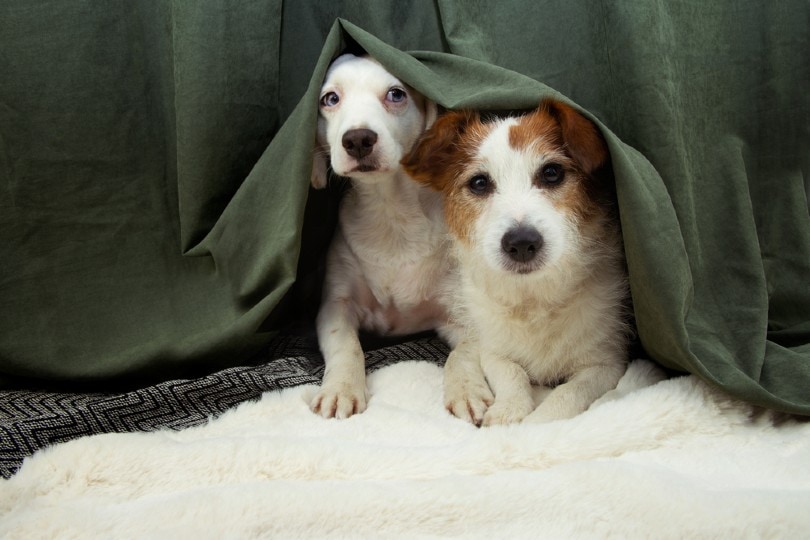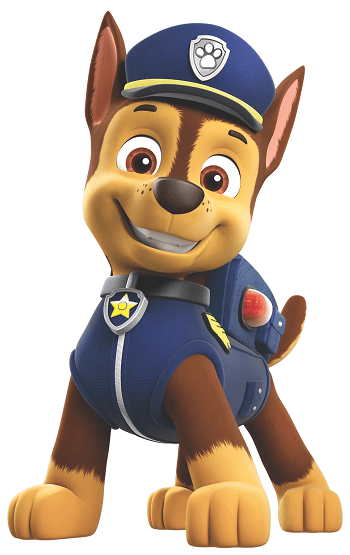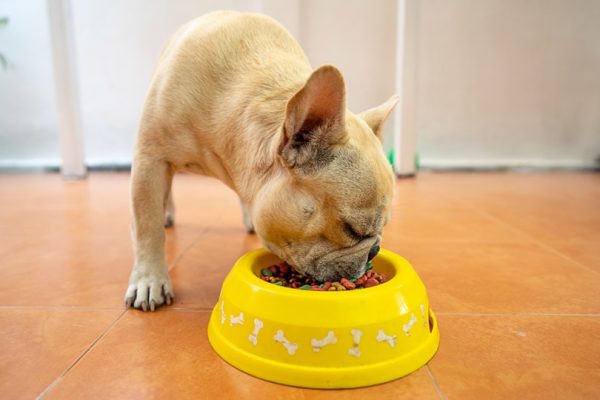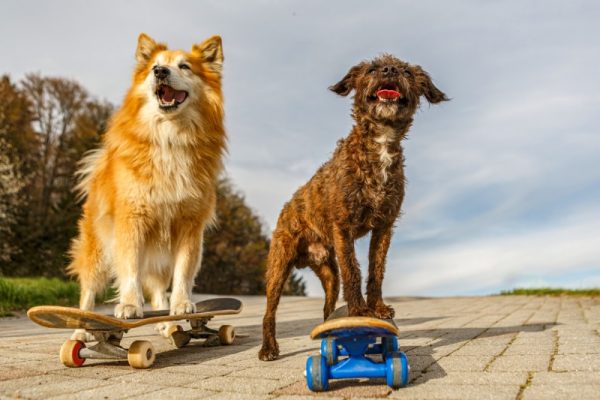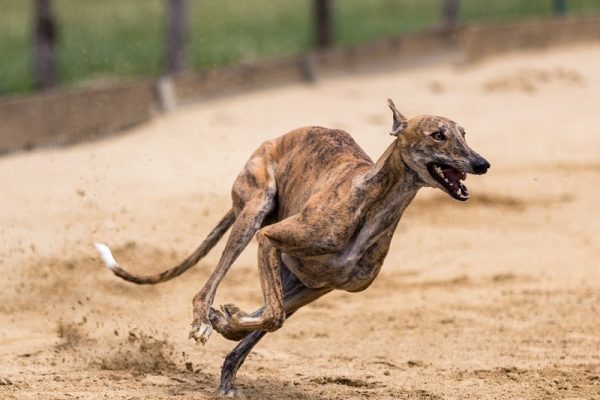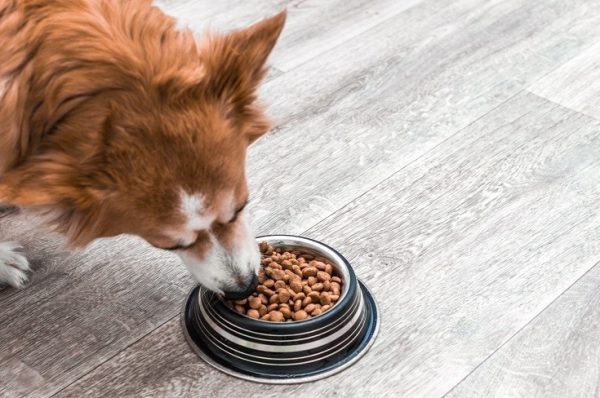If you consider that your sense of hearing pales in comparison to that of your dog, you probably understand why they hate the noise of fireworks.
Our canine friends are extra sensitive to loud noises. It is estimated that dogs can hear four times farther than we can. They can also hear higher frequencies and decipher noises much better than us. Imagine being a dog and listening to the intense crack of a firework—it would be deafening, right? That’s part of the reason that your pup gets frantic at your Independence Day celebration.
Let’s explore the many factors surrounding dogs’ fearful reaction to fireworks.

How Well Do Dogs Hear?
Dogs trump us in terms of senses, beating us with their hearing and smelling capabilities. But just how well can dogs hear? Way better than one might imagine, that’s for sure.
Dogs are pros at picking up on frequencies that we can’t hear. Humans can only hear frequencies up to approximately 20,000 Hertz (Hz). Dogs can hear frequencies up to 45,000 Hz. That means they hear well over two times the pitched frequencies that we can. That is why dog whistles appear silent to us! But that’s not all—dogs can also hear much quieter sounds than us, as low as -5 decibels. Now, that’s impressive! Gather all these details together, and it suddenly becomes clear just how stimulating fireworks might be.
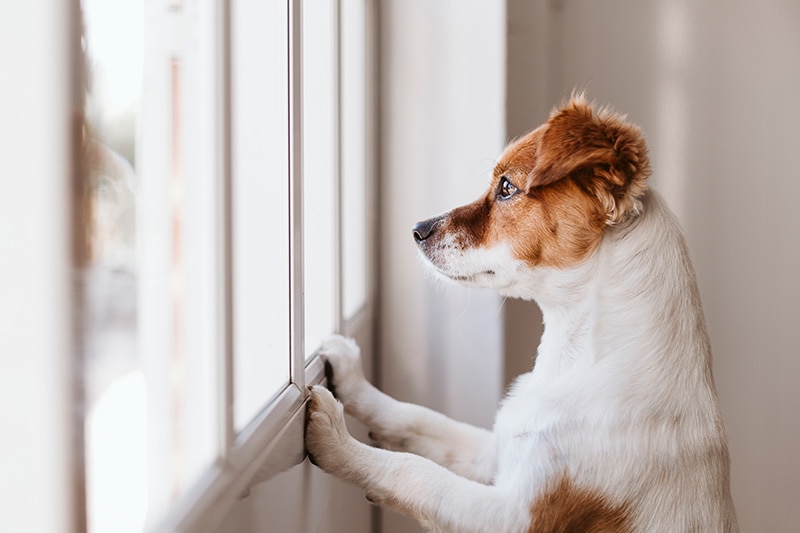

The 3 Reasons Dogs Are Scared of Fireworks
So, dogs have super sensitive ears and fireworks are no silent movie. They can be unpredictable, confusing, and ear-piercing. The reason that dogs are scared of fireworks is one or a combination of three things.
1. Commotion
Listen to that racket! Most dogs view fireworks as a source of unexpected and anxiety-inducing noise. Fireworks are erratic, unfamiliar, and noisy.
Dogs are primarily scared of fireworks for the reason that you can imagine; They’re loud. Most dogs can get used to their general environment. But it’s hard to get used to something that only happens once or twice a year. Dogs aren’t too happy about thunderstorms either.
2. Bright Lights
On top of the pops and blasts, fireworks light off unnatural sparks into the sky. The noise accompanied by the mysterious explosions in the atmosphere can be off-putting, to say the least. What kind of apocalyptic nightmare is this?
Lighting emitted from fireworks is abnormal and unnatural to your dog, which can frighten them.
3. Crowds
As if every other stimulus around wasn’t enough, there are probably many strangers around when you’re watching fireworks. Large crowds might trigger anxiety in dogs as it is. Mix that with fireworks, and you could have one frazzled pooch.
Each of these three factors stimulates a trigger for a fight-or-flight response in some dogs, alerting them that something is wrong. That’s why your dog dives under a table at every crack of thunder during a storm. They perceive this unstable, roaring sound as a threat, making them react in a bad way.
If your dog reacts negatively to this sort of festivity, there’s no reason to put them through the stress.
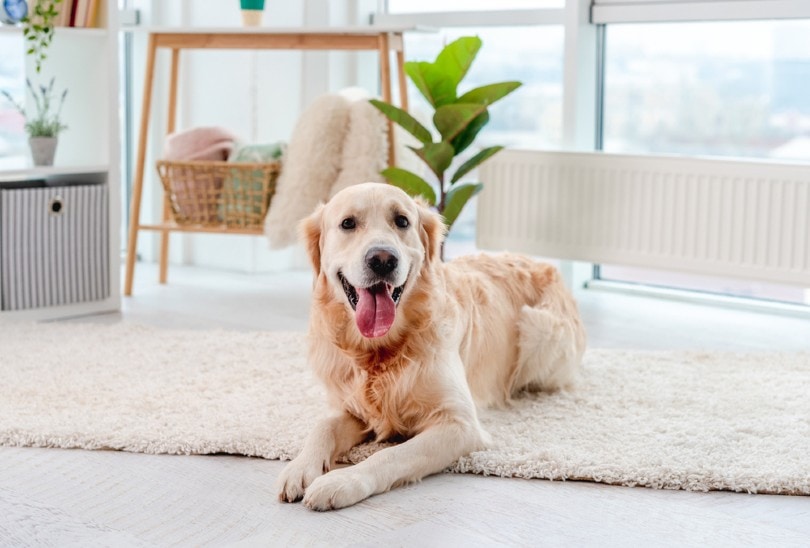

Dogs With Anxiety
If you have an easily stimulated dog, fireworks might be a sensory overload for them.
- Pacing
- Whining
- Barking
- Hiding
- Restlessness
- Panting
- Shaking
- Lip licking
- Drooling
- Urinating or defecating
If you have a dog that gets easily stressed, they might want to sit this one out. It’s best to put your pup in a safe environment rather than in an insecure situation.
How to Help an Anxious Dog
If you’re at home and you can still hear the crashes and booms outside, your dog is probably still frantic. So, here are different methods that you can use to calm your dog before or during the big show.
Get Plenty of Exercises Beforehand
Let your dog burn off extra energy that day. Take them out for a tiring game of fetch, go on a run, toss a frisbee—anything to let them expel any pent-up energy. Once they burn off a few calories, they might be so tuckered out that they barely notice the festivities.
Play Soothing Music
Humans aren’t the only ones who benefit from playing tunes. Studies show that dogs also enjoy the relaxing nature of music, especially reggae, soft rock, and classical. You can play soft music in the house to add soothing noise of your own.
Calm Them With Snuggles
There’s no one better to reassure your pup that all is well than their favorite human. Lie with them on the couch, or get down on the floor to massage, scratch, and talk to your buddy. The more you reassure them, the more confident they will feel.
Create a Safe Place
Your dog might like to be alone in an area where they feel unseen. If you want, create a nest or covered area that your dog can lie in to feel safe. They might have a favorite spot under your bed or a kennel that they run to for refuge. Make it feel inviting and protective.
Use Swaddling Methods
If your dog has bad enough anxiety, you might want to invest in a vest designed for dog anxiety. It is a heavy, tight coat that fits their body to calm them down. There are many sizes to choose from, and it is worth a try since many dogs have had good responses using it.
Try Alternative Medicine
If you want a different remedy, you can try pet-safe diffusers, pheromone collars, or calming supplements. These scents and chemicals can calm your dog, providing a sense of relief in trying times. Many owners prefer to give these products a try before using anxiety medications; however, a vet is the professional who will give you tailored advice for your dog’s specific situation.
Can You Get Your Dog Used to Fireworks?
If you start working with your dog early, they might not freak out over loud noises and crowds as strongly. The process is called desensitization, and it works by playing the frightening sound at a very low volume and pairing it with a positive experience, such as a treat or a favorite game. The dog will learn a new positive association, and the fear response will disappear. You can find commercially available CDs for this purpose. If you want to train your dogs, try to start as early as you can. However, know that it can be challenging and sometimes impossible for some dogs to change their reaction, especially adults.
The process is not easy, and you will need plenty of patience and collaboration with a vet. However, it is worth trying because it can massively improve your dog’s quality of life.
If you need to speak with a vet but can't get to one, head over to PangoVet. It's our online service where you can talk to a vet online and get the advice you need for your pet — all at an affordable price!

Tips to Keep Your Dog Safe During Fireworks
If you have worked with your dog toward this moment and you plan to take your dog on an outing with fireworks, there are a few things that you should consider first.
- Microchip Your Dog — If you haven’t done so yet, a vet can implant a microchip for your dog. These electronic chips are injected just under the skin between the shoulder blades. If your dog escapes and someone finds it, any vet or animal professional can scan the chip. It has a unique identification number, and they can look up the number in the database. The number is linked to your contact information, so make sure you contact them if your address or phone number changes. If your dog gets away from you for any reason, microchipping can bring you peace of mind that they can be found and returned to you.
- Use Proper Restraints — Having a harness that holds up against great force will be paramount in the situation. In case your dog panics and pulls out of a traditional harness, make sure you have a proper leash and harness combo. Harnesses with a control handle on the back work best, so you can get full control over them if you need to restrain them.
- Keep Your Dog Home — Unfortunately for us, our dogs aren’t always ready to party. Sometimes, they have to skip out on the fun stuff. If your dog doesn’t enjoy crowds, loud noises, or heightened stimulation, they should stay at home where they are safe.
Exposing an anxious dog to these kinds of activities might have the opposite effect of what you hope to achieve. There will always be another backyard barbecue with friends where your dog can socialize without worrying about loud fireworks.
Don’t feel like you’re leaving your dog out. Trust us—they’d thank you if they could.

Dogs and Fireworks: Final Thoughts
Fireworks can be the source of so many happy memories that we share with our families, so naturally, we want to include our dogs. However, for some dogs, exposing them to fireworks will cause anxiety, creating a potential flight risk. To keep your dog safe, always have proper restraints, and make sure your dog is microchipped.
If you’re at home but the sounds outside are getting to your dog, try to calm them with a compatible method that makes them comfortable. Remember that it’s not your dog’s fault—they have fabulous ears, and those noises are just plain scary!
See also:
- Are Marigolds Poisonous to Dogs?
- L-Carnitine for Dogs: Benefits, Uses & Side Effects (Vet Reviewed)
- Do Dogs Dislike Certain Colors?
Featured Image Credit: smrm1977, Shutterstock

